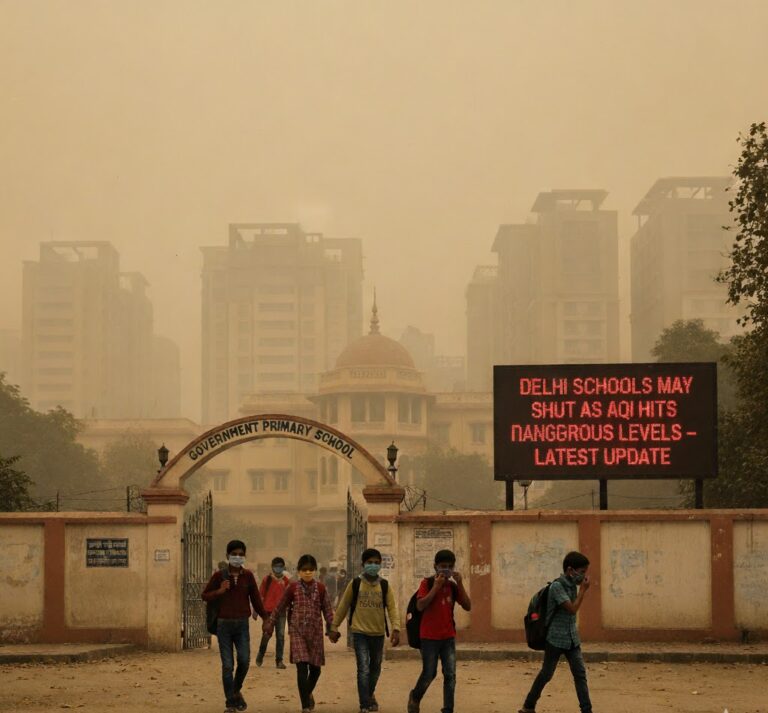The Delhi-NCR region is once again covered by heavy smog, with the Air Quality Index (AQI) falling into the “very poor” and “severe” categories. According to air quality monitors, breathing in some regions is the same as smoking several cigarettes each day.
- Residents in “very poor” zones consume pollutants equivalent to 6-10 cigarettes per day.
- In “severe” locations, daily exposure equals 16-20 cigarettes.
- The increasing conditions have resulted in respiratory problems among youngsters and seniors.
Delhi schools stop outdoor activities
- Due to the poor air quality, both public and private schools in Delhi stopped outdoor activities.
- Morning assemblies, playground sessions, and sports have been discontinued.
- Teachers are teaching indoors, and many schools have installed air filters.
- Institutions have been instructed to follow the Winter Action Plan to safeguard the safety of students.
Will there be a complete school shutdown?
- As the pollution problem grows more severe, authorities are considering temporarily closing schools or switching to online learning.
- If the AQI stays severe for the next few days, the Delhi government may declare a shutdown.
- Parent groups have requested online lessons until air quality improves.
- Officials continue to monitor situations under the Graded Response Action Plan (GRAP).
Health Precautions for Students and Parents
For Students
- Avoid any outside physical activities.
- Use N95 masks when commuting.
- Stay hydrated and spend more time inside.
For Parents
- Keep an eye out for early signs of respiratory problems or eye irritation.
- Maintain air purifiers or indoor plants to improve air quality.
- Stay in touch with schools to receive closure or hybrid class updates.
Conclusion
Delhi’s air quality has reached dangerous levels, causing schools and parents to take immediate steps. With outdoor activities paused and potential restrictions approaching, preserving children’s health is the first issue. Authorities continue to regularly monitor pollution levels, and online classes may be implemented as soon as conditions improve.

